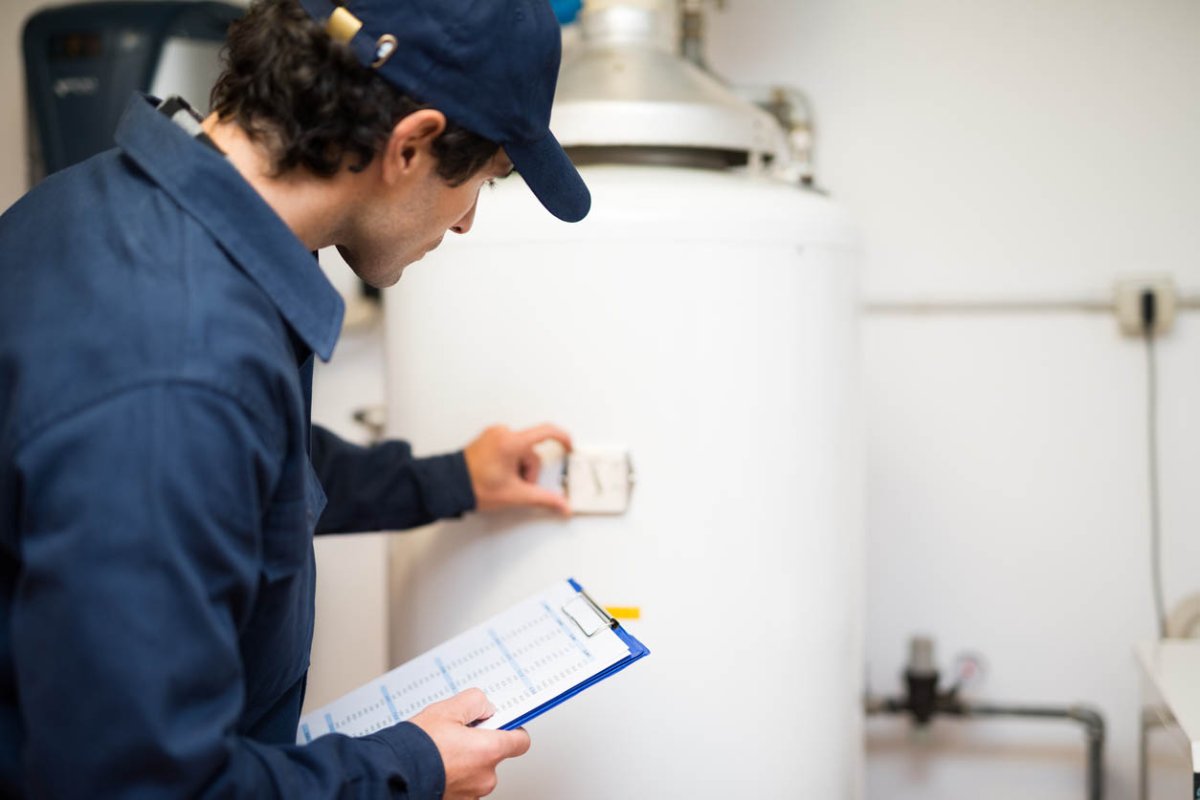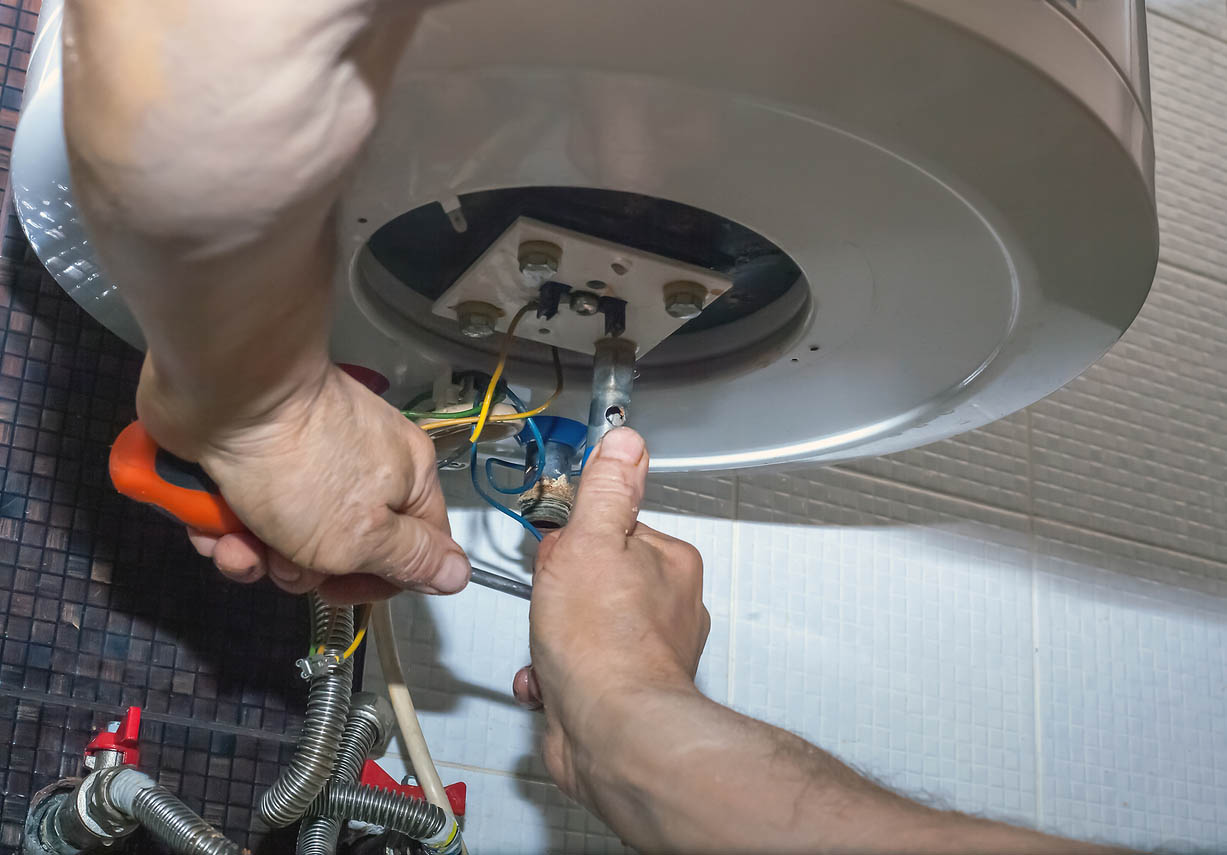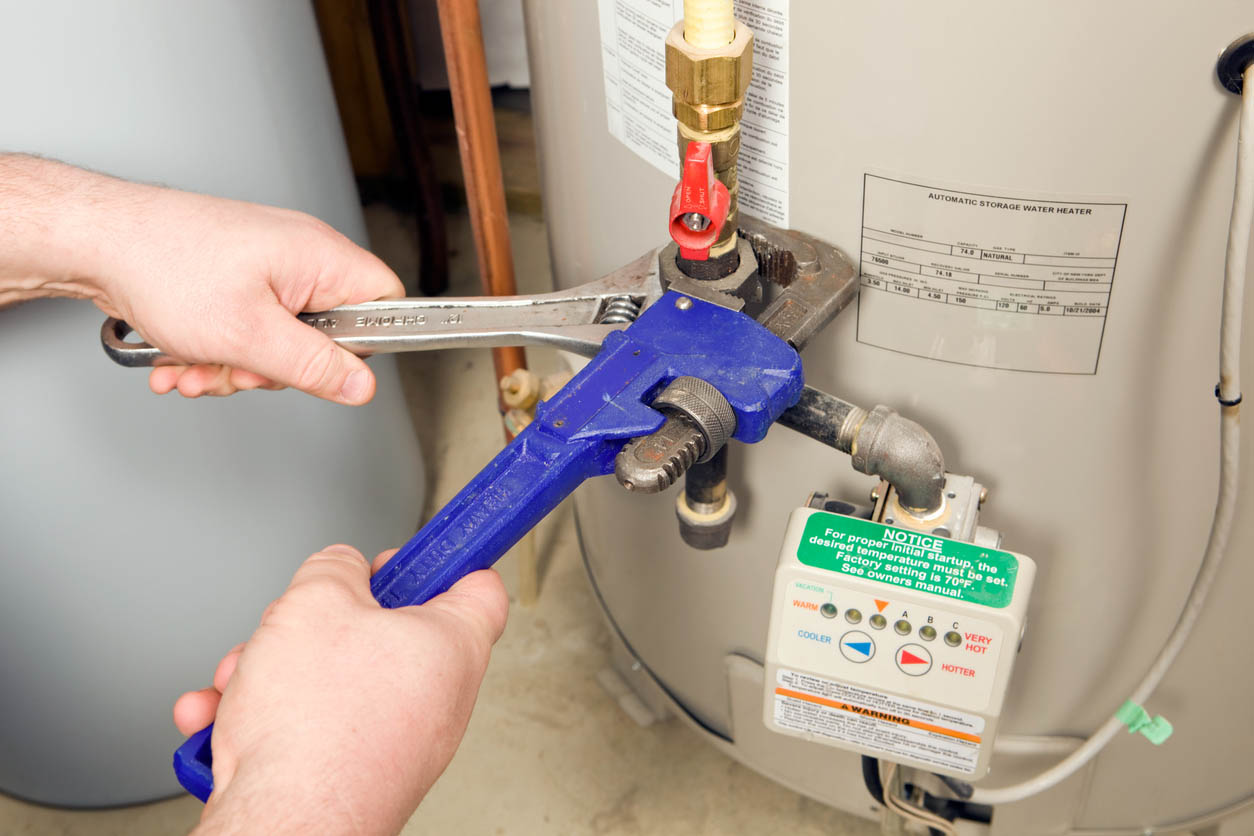

We may earn revenue from the products available on this page and participate in affiliate programs. Learn More ›
Q: Recently, I’ve noticed my hot water heater making an unusual noise that I’ve never heard before, and I’m not sure if it’s serious. Why is my water heater noisy, and should I be worried about it?
A: There can be many reasons for a hot water heater making noise, and not all of them are cause for immediate concern. Many involve minor repairs, and catching these problems early can save homeowners the cost of water heater replacement.
Homeowners need to be aware of how water moves and changes within a water heater and in different parts of a home that use running water to understand what causes a water heater making a loud noise. This can make it easier for homeowners to determine whether they’ll need to budget for water heater repair costs or if it is time to replace the water heater. Here are some typical water heater noises and what they mean, as well as information on when it’s time to call a professional to diagnose the issue.
A crackling noise can suggest a buildup of condensation and generally isn’t cause for concern.

Anytime water vapor is exposed to cooler air, condensation (liquid water) will form. A hot water heater usually won’t create condensation if temperature conditions remain consistent. However, when a gas water heater’s tank isn’t full, condensation can form.
For example, suppose a tank’s water supply is low because hot water has been used. In that case, cold water filling the tank lowers the tank’s temperature, cooling surrounding water vapor into droplets that can drip into different parts of the heater. Crackling sounds are a sign condensation droplets are vaporizing as they are being heated on the burner. If this noise only happens occasionally, it isn’t cause for alarm; however, a plumber can inspect the unit to confirm that it is working properly.
Humming sounds can suggest a loose heating element, which is a relatively simple fix.
Electric water heaters don’t have gas burners. Instead, they have at least one electrically powered heating element associated with a thermostat. If water falls below a set temperature, electricity heats the element, and water flowing around it heats up. Heated water circulates and warms the rest of the water. Problems with the heating element are among the most common reasons for an electric water heater not working.
When an electric water heater hums, this can mean the heating element is loose, either due to wear and tear or poor installation. The loose element acts almost like a tuning fork, vibrating from the push of water cycling around it—creating a hum. This water heater noise can be fixed by tightening the heating element.
Popping and rumbling sounds can indicate a buildup of mineral deposits and sediment.
A water heater popping sound is a type of house sound homeowners will not want to ignore as it could be a sign of sediment buildup. Sediment comes from minerals, and depending on the soil in an area, water is hard or soft. Mineral-rich hard water leaves behind more residue, and if a water heater isn’t flushed out regularly, residue builds into sediment at the bottom of the tank.
As sediment collects, it traps water. Because heat-conducting minerals surround this water, it overheats and builds up pressure, resulting in a popping sound as water forces its way through sediment. Long-term uneven heating and pressure can damage the tank’s lining. If left untreated long enough, the water heater could begin to crack or leak, at which point it will need to be replaced. Plumbers can remedy this issue before it is too late by flushing the tank.
Banging, hammering, or knocking noises can be caused by a sudden flow of water through the pipes or by improperly anchored pipes.
A knocking noise known as “water hammering” occurs when pipes that aren’t securely anchored move and hit against each other or the interior of the wall. Any abrupt change in water flow can trigger the sound—because pipes move as water does. This can happen when a toilet is flushed, a dishwasher is run, or a pump without a holding tank is running.
A water heater making knocking noises isn’t an immediate problem, but it can cause damage to pipes and their surroundings over time. Homeowners can secure pipes with insulation or install a water hammer arrestor on valves to stop the knocking.

Screeching, screaming, whistling, or singing noises can signal restricted water flow or loose water valves.
A screeching water heater noise is a sign that water flow is restricted, either at the valve letting water into the heater (the inlet control valve) or at a valve connected to water in the home. When a water valve isn’t open all the way, water moves through a narrow space at a higher pressure, creating a high-pitched sound.
The inlet control valve is often to blame, and the issue can be addressed by turning the valve to fully open it to lower the water pressure. If adjusting a valve doesn’t stop the noise, the valve may need to be replaced.
Ticking sounds can be caused by heat traps or check valves.
Many water heaters have heat traps or check valves in pipes at the top of the heater to reduce wasted heat. These special-shaped valves trap hot water and encourage only cool water to flow back into the heater. This helps with water heater efficiency and ensures that water flows in the right direction. But as water moves through the valves, changes in pressure from different water temperatures create ticking sounds.
These sounds are normal, but if tapping sounds from a valve are concerning, heat traps can be swapped for dielectric nipples, which are smaller fittings that perform the same function. They also have the additional benefit of making the water heater operate more efficiently.
A sizzling or hissing sound could signify a buildup of sediment or a leak in the water heater.
A leaking water heater needs immediate attention, and a homeowner can be clued into this issue when they observe the water heater making hissing noises or sizzling sounds. This water heater noise comes from liquid water dripping out of one of the heater’s valves or another connection and vaporizing from contact with the hot exterior. As with crackling noises from a water heater burner, some condensation within and around a hot water heater is normal. However, larger amounts of water outside of the water heater need professional attention. A leaky water heater could require pipe changes, tank replacement, or the whole heater system replacement. Homeowners can search for “water heater repair near me” to find a professional who can identify the right solution.

Many unusual water heater noises can be prevented with a few simple steps to prevent sediment buildup.
Sediment buildup is one of the most common water heater problems and is often the culprit behind the unit making strange noises. To get rid of existing sediment, homeowners can have a plumber flush the unit by emptying the tank, and then rinsing and draining it until all the sediment has been removed. Flushing a water heater at least once per year is an essential part of water heater maintenance. Those comparing the cost of a tank vs. tankless water heater will want to know that not only do tankless water heaters cost more, but they might also require more frequent flushing if the home has hard water.
In between annual visits from the plumber, homeowners can also drain their water heaters every few months to slow the buildup of sediment. Another option is to install a water softener if the home does not already have one, as this will remove sediment from the water before it reaches the water heater in the first place. A professional who installs water heaters will also likely be able to install the water softener.
A professional plumber can help determine the cause of your water heater making noise and address the issue.
Even though some issues that make a water heater noisy don’t involve complex repairs, not every homeowner is comfortable working with a water heater. Some parts of hot water heaters are very hot to the touch and can burn skin. Whether a homeowner has a traditional tank-style water heater or one of the best tankless water heaters, a plumbing professional can observe and handle different parts of the water heater carefully, with particular attention to the connections to plumbing, gas lines, and electricity. They can also tell if the unit is nearing the end of its lifespan so homeowners can replace the water heater before it fails.
Having an awareness of a water heater’s normal sounds is a start. If something changes and new conditions—like puddling water—develop, a professional who fixes water heaters regularly can make the best call to address the broken water heater safely.
